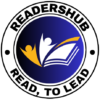When it comes to assessing student learning, instructors often must choose between two popular assessment methods: self-assessment and peer assessment. Each method has its own benefits and drawbacks; thus, the decision of which to use depends on factors such as the type of course being taught, the subject matter being covered, and the class structure that is in place. In this article, we’ll go over the pros and cons of both self-assessment and peer assessment in order to help you decide which method works best in your situation. Self-Assessment vs. Peer Assessment: Which is More Effective? We are going to find out in this article.
What are the pros and cons of self-assessment?
Self-assessment can be a great way to get feedback on your work and learn more about your strengths and weaknesses. However, it can also be difficult to be objective about your own work, and you may not always get the most accurate feedback.
What are the pros and cons of peer assessment?
There are both pros and cons to using peer assessment in the classroom. On the plus side, it can promote student engagement and responsibility for learning. Additionally, it can provide valuable feedback to the teacher about what students are struggling with or excelling at. On the downside, peer assessment can be time-consuming and may be subject to bias. Ultimately, the decision of whether or not to use peer assessment should be based on the specific needs of the classroom and the goals of the teacher.
Conclusion
Overall, self-assessment is a more reliable and effective method of assessment than peer assessment. This is because individuals are more likely, to be honest with themselves than with others, and they are also more likely to be aware of their own strengths and weaknesses. Additionally, self-assessment is less time-consuming and can be done more frequently, which allows for more accurate data. Self-Assessment vs. Peer Assessment: Which is More Effective? Please, share your thought.


These two means assessment in a teaching and Learning procedure have advantages and disadvantages, as correctly stated above.
In addition, it is important for the facilitator to always guide and train the children using a well and jointly established rubrics to guide in either of the methods.
From my perspective which is based on experience; is good for a teacher to expose the children to these two means of assessment has they both have their long term benefits as the children pass through the different stages of life.
Moreover, in a classroom situation where lots of factors dictate the process of teaching and learning; both the facilitator and the children would achieve immensely if a peer assessment is used during the lesson – Assessment for Learning (AFL) or formative assessment.
While, I will prefer to use self assessment in the Assessment for Learning (AOL) or summative assessment.; in addition to the feedback or Feedfoward comment from teacher.
Thanks for your contribution sir. This is very deep. At times, we don’t rely on self-assessment of our students because we don’t trust them enough when it comes to giving feedback on their projects or assignment. Moving forward, I think educators should give students the chance for self-assessment.
Nice one, i love this aspect of Rethinking Education where the needs of every student is meant in a personalized teaching and learning, when learning is tailored to each individual’s strengths, weaknesses, and interests. When done correctly, it can lead to better grades, improved test scores, and higher levels of engagement.
A wonderful contribution.
Very Interesting learning platform.
nice one
To me both are effective. However for self assessment to be effective, peer assessment has to be done first. Teachers are there to impact knowlege into learners (thats the aim of teaching) so for that goal to be achieved successfully, a good teacher will get feedback from his students to know if he’s really reaching their heart with his method of teaching and if not, he needs to access himself (self-assessment) to see how to adapt so as not to waste precious time striking the air so to speak
Whatever the form is, assessment is a great tool of getting feedback from learners.